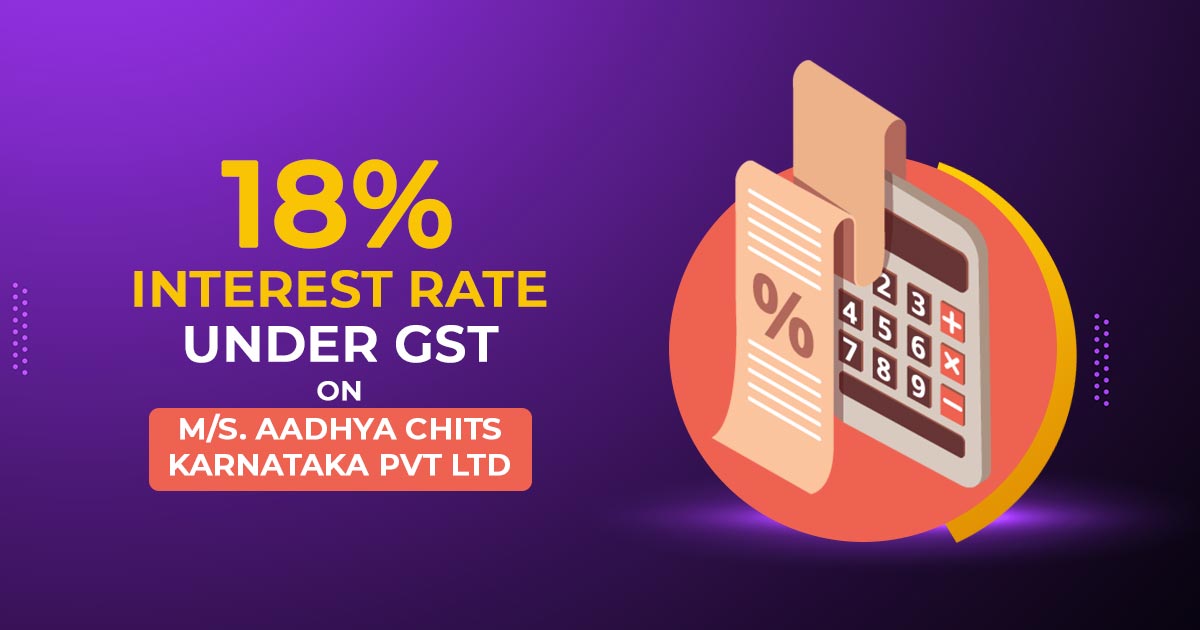
The Registered Taxable Person (RTP) who is providing Chit Fund Services has been assessed an 18% interest rate by the Karnataka Commercial Tax Officer (CTO) on the net tax bill as a result of the delayed filing of GSTR-3B for the whole 2017–18 fiscal year, with the exception of only August 2017 and March 2018.
The entity is known as M/s. Aadhya Chits Karnataka Private Ltd categorized as a Registered Taxable Person, works as a supplier of Financial Services by providing Chit Fund services, according to the information that is currently available. By paying taxes on the commissions imposed by the foreman for administering this Chit Fund, the business fulfils its tax duties.
Read Also: GSTR-3B Late Filing Can’t Delay GST Credit Claiming Process U/S 16(4)
Under Section 65 of the Karnataka State Goods and Services Act, 2017, the Commercial Tax Officer has granted authorization to perform an audit of the books of accounts, documents, and records kept as well as the returns submitted in accordance with the Act by the RTP for the 2017–18 fiscal year.
The RTP under its pursuance, filed the books of accounts for Audit. The accounts possessed Audited Financial Statements with schedules, ST-2 Returns for the period (April-17 To June-17), IT Returns with FORM 26AS for the FY 2017-18, Chit Service Incomes Line Items for the period 01-04-2017 To 31-03-2018, Chit Service Incomes Monthly Extract and Rent Ledger Statement (RCM Paid) for the period (July 17 To March 18).
Post-verifying the financial records as well as cross-referencing the details furnished in the monthly GSTR-3B returns, it fetched that the RTP (Registered Taxpayer) would have successively furnished such returns post the due dates in the whole year, with the exception of August 2017 and March 2018. RTP does not place the interest connected with the late net taxes submissions.
Therefore, the Commercial Tax Officer declared that the RTP is required to pay an 18% interest on the net tax amount as a result of this breach of Section 39(1) of the Central Goods and Services Tax Act (CGST) / KGST Act-2017. The CTO said that under the GST system, a banking company or financial institution, including a non-banking financial firm, shall have the following two alternatives to obtain ITC in accordance with Section 17(4) of the CGST Act with regard to the excess claim of ITC on tax paid under Reverse Charge Mechanism (RCM).
The first choice is to reverse the credit for exempt services in accordance with the procedure outlined in Section 17(2) of the CGST Act when read in conjunction with the pertinent State Act and Rules thereof.
Another option would be to claim 50% of the eligible input tax credit (ITC) on inputs, capital goods, and input services in the same month and the rest shall expire.








